8. Children of Men (2006)
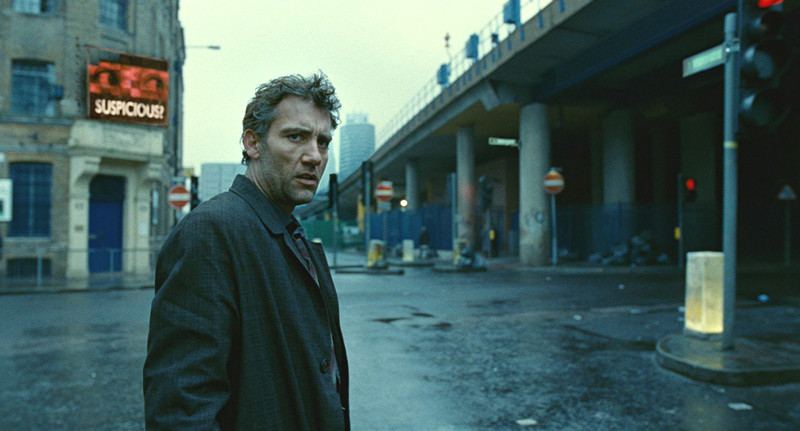
The United Kingdom, 2027: eighteen years after all human beings have been rendered infertile, a world teetering on the edge of oblivion is shocked to find out the youngest person on earth had been murdered.
Theo Faron (Clive Owen), a bitter ex-revolutionary turned bureaucrat, couldn’t care less either way–until he’s kidnapped by a revolutionary group and is brought to his estranged wife Julian (Julianne Moore), who offers him money to escort a refugee to a safe point through the many security checkpoints that dot the countryside. After many harrowing clashes with both the military and revolutionaries, Theo finds out why this girl is so important: she’s the first pregnant person in 18 years.
Children of Men is one of the bleaker visions of the future put on film in the 21st century, with a seemingly hopeless world depicted that has advanced technologies but no real purpose left to go on.
Raising questions of what kind of world we would have that literally has no future for human beings, Children of Men–which is brilliantly directed by Alfonso Cuarón–answers with: not much of one at all. With its disturbing implications about what could happen to civilization itself when faced with extinction, Children of Men is a memorable sci-fi film that’s a little too close to reality for comfortable viewing.
7. The Man from Earth (2007)

John Oldman has quite a story to tell his colleagues at his farewell party just before he moves away: he’s actually a 14,000 year-old man who has somehow survived throughout history. While initially scoffing at his assertion, believing it to be some sort of joke, and then alternately fascinated and furious at the details he provides about the history of mankind–and especially his direct involvement in it–the story unfolds of how Oldman has been not only integral to the development of civilization but may even be divine.
One fascinating aspect of The Man from Earth is how it’s a sci-fi film that exists exclusively through dialogue. There are no great special effects or even flashbacks to history: the story unfolds through a series of intellectual arguments between Oldman and his colleagues and through stories he tells about his extraordinary life.
This was the last screenplay by Jerome Bixby–who wrote episodes for The Twilight Zone and Star Trek–and was made for just $200,000. But the craftsmanship of the story and dialogue, along with a stellar concept, makes The Man from Earth an essential sci-fi film for any fan of the genre, especially those who enjoy films that seem to spin magical ideas out of thin air.
6. Her (2013)
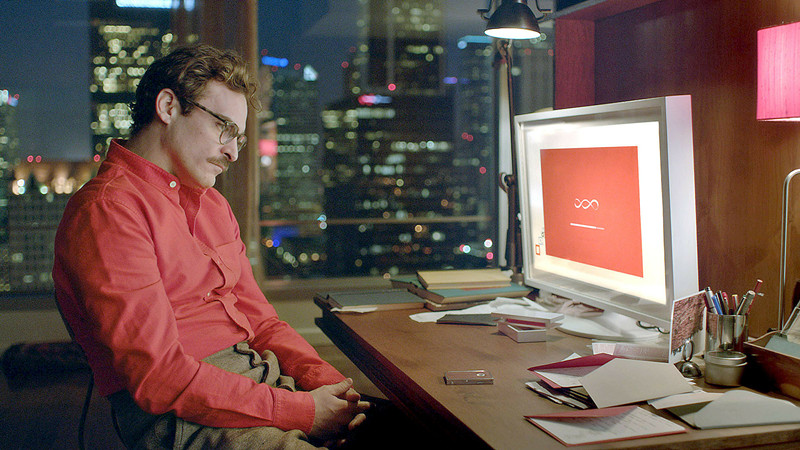
Theodore Twombly (Joaquin Phoenix) is a lonely man depressed over his soon-to-be finalized divorce from his wife. When not at his job as a writer composing personalized letters for people, he sits at home and plays video games at night.
After seeing a commercial, Theodore purchases a talking operating system that runs on artificial intelligence. After the system asks him a few questions during set-up and giving the OS a female voice, the AI gives herself the name Samantha (voiced by Scarlett Johannson) and the two begin to interact. Fascinated by the AI’s ability to learn and grow, eventually Theodore falls for Samantha and the two begin a relationship that’s alternately touching and strange to watch develop.
Her can be a somewhat uncomfortable film to watch, particularly if the character Theodore reminds the viewer of themselves. But director Spike Jonze keeps one foot off the trolley throughout, letting the story develop in strange and unexpected directions as the relationship between Theodore and Samantha develops–and when it begins to break apart.
The core of the film’s concept is the most fascinating aspect, as it posits a near-future where machines become indistinguishable from living humans, even excelling in many areas, and what this sort of relationship may be like. With a believable (and at times heartbreaking) chemistry between Phoenix and a completely unseen Johannson, Her intelligently and emotionally explores potential near-future relationships between humans and AI and the unforeseen consequences of such an arrangement.
5. Stalker (1979)
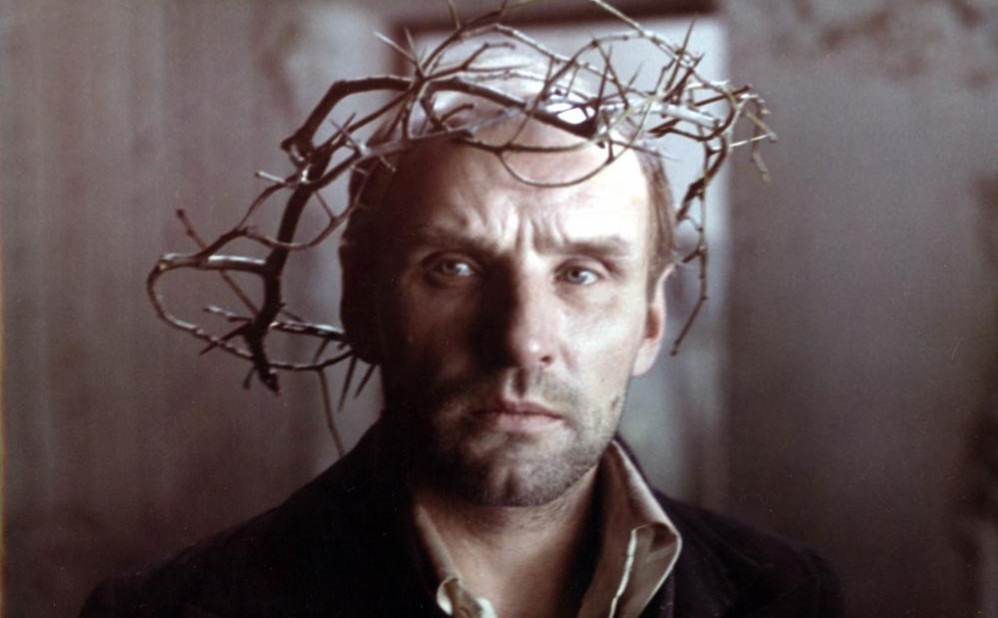
In an undefined future, a figure known as a “Stalker” takes two clients, a depressed writer looking for inspiration and a professor seeking discovery, into a mysterious site only known as the “Zone.” In the Zone is a room that supposedly is able to manifest a person’s innermost desires.
To get to this room, however, the trio must travel through a decayed landscape that seems to be the remnants of modern society. During their travel through the Zone, the three engage in many arguments with each other as to why they are taking this journey, but upon reaching the room their true motives are discovered, one of which is to destroy the room itself.
Andrei Tarkovsky, one of Russia’s greatest directors, has always approached science fiction with a philosophic mind–after all, his 1973 film Solaris is one of the greatest sci-fi films ever made, along with being one of the most meditative. But 1979’s Stalker seems to transcend even that film, delving further into using the devices of science fiction as an avenue to further explore philosophical and dramatic theories–in Stalker, Aristotelian unity and the difficult, contradictory nature of human desire and realization of the self.
Of course, Tarkovsky’s signature stylistics of long takes and subtle camera movement are on display, forcing the viewer to meditate on the scene and dialogue rather than being forced through time and space via editing tricks. The result is a sci-fi film that goes further than most to explore the great philosophical potential that science fiction as a genre has to investigate the invisible but tangible complexities of consciousness, being, and the self.
4. 2001: A Space Odyssey (1968)
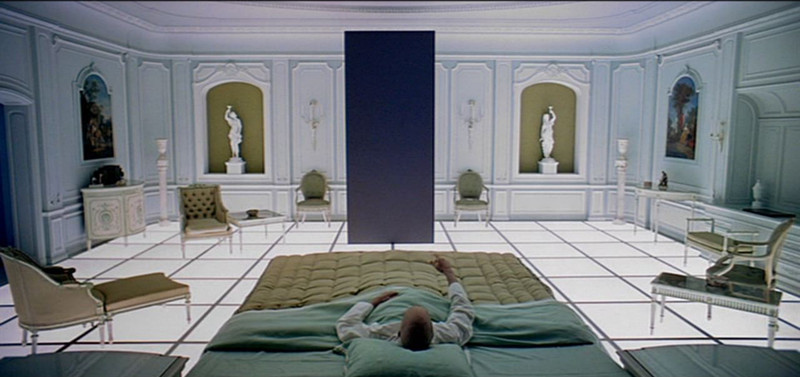
The last four films on this list are invariably impossible to not include on a list of this nature: they are some of the most influential science fiction films ever made and some of the most thought-provoking films of the genre. 2001: A Space Odyssey is one of these, a sci-fi film whose influence on film itself cannot be understated.
Besides revolutionizing the field of special effects, 2001 also introduced the first fully realized artificial intelligence character in film and depicted a spectacular future where space travel has been commercialized (and normalized) in civilization. Besides its “hard” sci-fi elements, 2001 transcends the realism of much of the film in its last act, which depicts a dazzling trip through space-time by its main character that represents the unknown–and unknowable–awaiting mankind in the stars.
Of course, who could expect any less from Stanley Kubrick, whose films always seemed to include multiple layers inside their seemingly straightforward narratives? Adapted from Arthur C. Clarke’s novel, 2001: A Space Odyssey is a film that seems slow on the surface but is churning away with subtext and intricate details inside itself. One of the best films ever made, 2001: A Space Odyssey seems to not just encapsulate science fiction as a genre but swallows it whole.
3. Metropolis (1927)
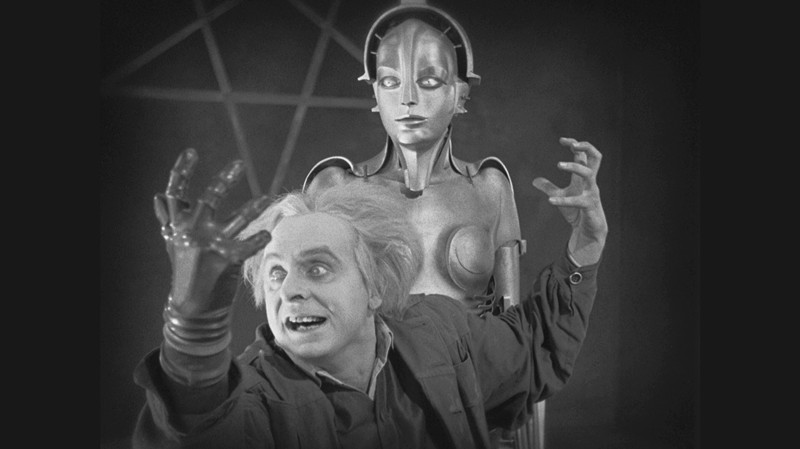
In 2026, the massive city of Metropolis stands as a shining beacon of mankind’s technological innovation: with high rises, air travel, and advanced mechanical innovations that make the lives of those living there a paradise.
However, underground is where the working class lives and toils to keep the city running and the wealthy so comfortable above-ground. When the son of one of the rulers of the city falls in love with an underground worker, he becomes intent on helping the workers out of their strife. This is complicated when a robot that looks like the worker he loves, built by his father, is sent underground to create dissent among the workers.
This silent film was one of the codifiers of the sci-fi genre and has been massively influential as a result. But to modern audiences, Metropolis holds a number of thought-provoking ideas to consider. Is this a film that leans on Marxist ideals, or one that criticizes and condemns such a political philosophy? Can mankind only achieve greatness and luxury on the backs of the many, who toil away in thankless anonymity for the benefit of a few? These questions and many more are raised in 1927, a film that’s been as influential as it has been fascinating to audiences in the 90 years since it was first released.
2. Blade Runner (1982)

Blade Runner has been a hugely influential film to sci-fi films, and with its long-delayed sequel Blade Runner 2049 it seems audiences are still interested (well, fellow nerds anyway) in finding out the conclusion to the dangling mystery the original left open nearly four decades ago.
Deckard (Harrison Ford) is a “blade runner”–a bounty hunter that captures escaped replicants, advanced humanoids made to withstand extreme conditions humans cannot and have an expiration date built into them. But instead of being a straightforward sci-fi action film, Blade Runner is more interested in investigating the nature of humanity and what makes someone “human”–a concept that remains central in its sequel.
Blade Runner makes its central mystery about whether or not the replicant Deckard has fallen for, Rachael (Sean Young), is “human” enough for him to love–in other words, the central mystery of Blade Runner is of the self. Roy (Rutger Hauer) and Pris (Darrell Hannah), two replicants being hunted by Decker, seem more like angry and confused children who wonder why they were made to be stronger and smarter than any human being but are doomed to short lives.
In general, the film lets the viewer know that these aren’t mindless robots but creations with depth and even soul, who want nothing more than to keep living. This fascinating approach to a hard sci-fi film, one that promises action and adventure on the surface but penetrates to explore deeper metaphysical questions, is one that has kept audiences talking about Blade Runner after all these years and is one still yet to be answered.
1. Matrix (1999)
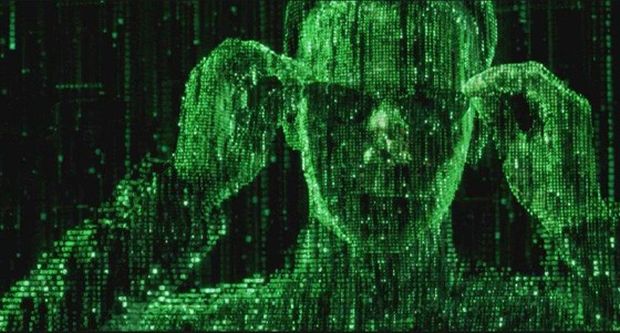
Of course The Matrix is on this list. If there’s any sci-fi film that has opened up the intellectual possibilities of science fiction to the collective consciousness, it’s 1999’s The Matrix. While its concept has been explored before–most notably (but somewhat obscure to popular audiences) in 1973’s World on a Wire–it’s never been presented in such a slick, action-packed package as The Matrix offered.
The central idea of The Matrix is no spoiler at this point–young hacker Neo (Keanu Reeves) is suddenly awoken by a group of freedom fighters to the fact that world as he knows it is actually a vast computer simulation created by AI that human beings lost to in a world war long ago. What makes this one of the most thought-provoking sci-films of all time is how it caught fire in the popular imagination like no other sci-fi film before.
At the turn of the century and beyond, The Matrix became so ubiquitous that the terms “red/blue pill” have become shorthand for ideas that radically change a person’s perspective on an issue.
Even today it seems most sci-fi films–if not most fiction itself–is perpetually looking for larger “twists” to place their narratives in that will evoke the same sort of paradigm-shifting, reality-questioning effect The Matrix had on audiences. One of the most ingenious concepts for a sci-fi film, The Matrix is still highly influential and heavily referenced by fans of the genre and film audiences in general.
Author Bio: Mike Gray is a writer whose work has been featured on a number of websites and maintains a TV and film site at MeLikeMovies.com.